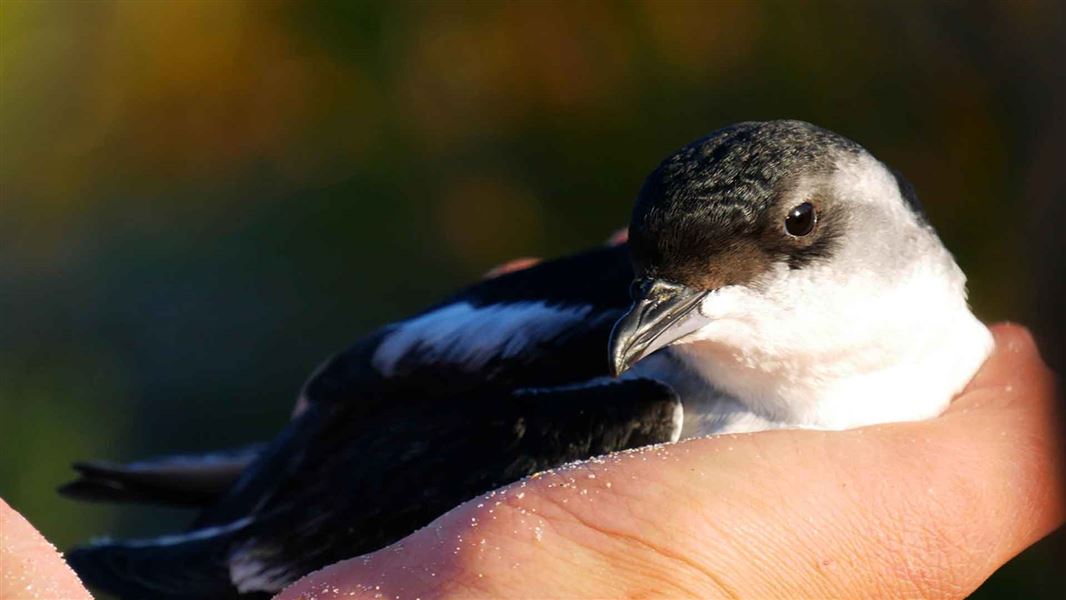Scientific name: Pelecanoides whenuahouensis
Population: Stable
New Zealand status: Endemic
Conservation status: Threatened – Nationally Critical
Primary threats: Storms and storm surges, competition, and marine light pollution
Basic information
Length: up to 20 cm
Weight: 125 g
Population: 220 adults
Food: krill, juvenile fish, and juvenile squid
Distribution
The Whenua Hou diving petrel only breeds in dunes of Waikoropupū (Sealers Bay) on predator-free Whenua Hou (Codfish Island). The species forages west and south of Rakiura (Stewart Island) over the Stewart Snares Shelf during the breeding period (September–January) and along the polar and subantarctic front south of Australia during the non-breeding season (January–September).
Challenges
Challenges include:
- the vulnerability of the extremely small and limited population
- increase of storms and storm surges under the onset of climate change
- competition with more aggressive seabird species for nest sites
- collisions with vessels caused by disorientation due to light pollution.
What we are doing
We have been monitoring the Whenua Hou diving petrel population since 2002 to understand population dynamics, trends, threats, and identify potential solutions.
We used the gathered information to identify the best potential conservation strategy for Whenua Hou diving petrel with Ngāi Tahu, Fisheries New Zealand, Environment Southland, and industry through a structured decision-making process. This strategy includes mitigating light pollution at sea, restoring the dune system, and translocations, following successful trials.
Read more:
- Hand-rearing and translocation trial of the critically endangered kuaka Whenua Hou
- A structured decision-making approach for the recovery of kuaka/Whenua Hou diving petrel
How you can help
You can help by:
- ensuring your vessel is free of rats, especially when you are close to a predator-free island like Whenua Hou
- dimming your lights when you are out at sea (PDF, 535K).
